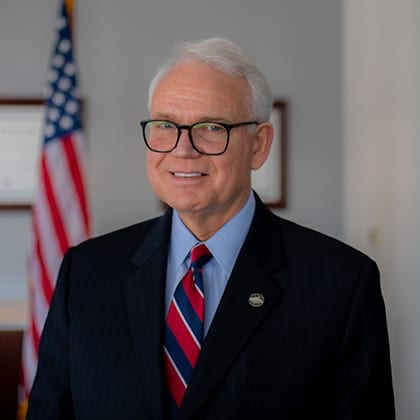
Written by Rick B. Larsen
February 13, 2018
Originally published in the Deseret News.
In my previous career as a business and philanthropic consultant, I often accompanied financial planners advising people who were about to inherit significant amounts of money. My role was to provide insights into effective methods of charitable giving.
I met families driven to unify and change the world. Others just wanted their money and not too many ties to their siblings. Despite elaborate structures and estate planning, wealth could be used very differently — and in many cases, it was divided and soon gone.
Money magazine writer Chris Taylor reports, “70 percent of wealthy families lose their wealth by the second generation, and a stunning 90 percent by the third.” The trend is so ubiquitous that it has its own adage: “Shirtsleeves to shirtsleeves in three generations.”
Many reasons underlie such a dramatic shift in wealth, and the most common has nothing to do with loss — and everything to do with surrender.
Outside factors can affect wealth: Division among heirs can dilute it and market forces may reduce stock prices. But as investment CEO Tom McCullough explains, “Among the most compelling causes (of wealth loss) are younger family members who are ill-prepared or unwilling to shoulder the responsibility” surrounding the stewardship of wealth. “They have grown up with plenty of money and are a step or two removed from the work ethic and drive of the people who made it for them.”
This is not a judgment or criticism of wealthy families — to the contrary, it is an acknowledgment that we all, in different ways, share the same challenges of proximity and stewardship.
McCullough maintains that while the experiences of life are the best teacher, “money and often power short-circuit those natural consequences. So parents end up using money, out of love, to help their children avoid the natural, character-building consequences of life.”
Just as generations who are “a step or two” removed from the character-building challenges of earning wealth can become complacent, entitled and accustomed to the privilege — so it is with our larger American family.
We as a nation may be on our way to a generational loss of connection to the origins of our greatest wealth — our freedom. There is an ever-increasing distance between us and the work and sacrifice that built our fortunate estate. And over time, some of us may be ill-prepared or unwilling to shoulder the stewardship of freedom.
Even though we are more than 250 years removed from the Founding Fathers, we should remind ourselves often that those brave human beings who embarked on a revolution had no guarantees. Like the modern business entrepreneur, their families and fortunes were at risk. Unlike the modern entrepreneur, so were their lives.
As chronology continues to compound the distance between us — the heirs of freedom — and that original family of patriots, we must be diligent in preserving our understanding and vision. Otherwise, as with generational heirs accustomed to ease and privilege, we may find ourselves comfortably disengaged — even intolerant — as we fight over trivial things. In such a state, we risk becoming our own worst enemies. We may use our advantages to stage political fights, exaggerate differences with social and cultural foes, and construct divisions erosive to our wealth of freedom.
A hopeful insight: Those same experts who measure patterns of wealth loss point to one compelling characteristic among families who beat the odds: a clear set of articulated family values. Yes, it matters that we acknowledge our position of privilege and share both appreciation and context with the next generation. That sounds a lot like a teaching we are already familiar with that says, “Where much is given, much is expected.”
This conversation serves to enforce the notion that we as current holders of wealth can transfer the estate. We can make the effort to learn and share history. We can endow our heirs with a sense of purpose and gratitude. We can connect them to the struggles and great thoughts of previous generations. We can equip them with the skills and inclination to have civil conversations about difficult topics. We can recommit to this nation’s values and to the maintenance of this hard-earned wealth.
In November, Matthew Holland was presented the “Sutherland Institute New Birth of Freedom” award. All in attendance felt the power of his acceptance speech as he declared, “If freedom is to last — and last it must — freedom is to be born over and over again, conceived and reared by one loving generation always looking to the next.”
We should aspire to give the next generation what matters most. It has been said that we often work so hard to give our children the things we did not have that we fail to give them what we did have. So it is with wealth — so it is with freedom.
More Insights
Read More
How transparent are school districts about curriculum?
Utah districts don’t need to wait for legislation to be transparent – many have sought to be transparent on their own. District leaders interested in this reform can do several things right away.
What you need to know about the upcoming state party conventions
The two major political parties are about to hold their state conventions. Here’s what you need to know.
Here’s why the First Amendment’s religion clauses are not in conflict
Some suggest there is a tension between protection for the free exercise of religion and the prohibition on the establishment of religion. But a better take is to see the two clauses as congruent.


